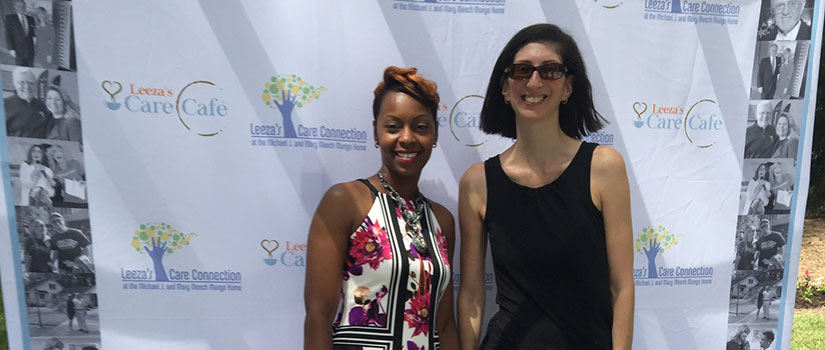July 28, 2016 | Erin Bluvas, bluvase@sc.edu
The Office for the Study of Aging (OSA) not only administers its own programs and services, such as the Dementia Dialogues and the management of the South Carolina Alzheimer’s Registry, they also have partnerships with an array of other organizations and agencies that focus on aging. For example, the Office works with the South Carolina Lieutenant Governor’s Office on Aging to offer the South Carolina Vulnerable-Adult Guardian ad Litem Program. They also collaborated with healthy aging partners across the state to develop recommendations for South Carolina’s long-term care system and are playing a key role in implementing solutions.
Another one of OSA’s long-standing partnerships is with Leeza’s Care Connection, which was founded by Leeza Gibbons to provide free resources, education and support for family caregivers. She has been providing free services through her programs Leeza's Place and Leeza's Care Connection since 2002, offering education, empowerment and energy to anyone caring for a loved one with a chronic illness or disease. Arnold School and OSA members (pictured above from left: Macie Smith, OSA; Daniela Friedman, HPEB) were on hand to show their support on July 7 when Gibbons opened her latest Leeza’s Care Connection at the Michael J. and Mary Meech Mungo Home in her hometown of Irmo, S.C.
Families in need want to know that someone else has walked in their shoes and has practical resources to help support them on their caregiving journey.
-Macie Smith, OSA Program Development & Training Manager
Working with Leeza’s Care Connection and Lexington Medical Center staff, OSA also contributed to the development of a training program for a key component of the new Columbia center. The Helping You Grow Stronger (HUGS) program is a network of ambassadors who have experience as family caregivers and are available and accessible to share their wisdom with others who are new to caregiving.
These ambassadors are volunteers who are certified through a collaborative partnership between Leeza’s Care Connection and Lexington Medical Center to provide virtual or in-person contact with caregivers who may feel lost, afraid or alone. “Families in need want to know that someone else has walked in their shoes and has practical resources to help support them on their caregiving journey,” says Macie Smith, who is the Program Development and Training Manager for OSA. “These volunteers are a team of hope and help who can offer an authentic lifeline for others who are called upon to serve as caregivers.”
The Office for the Study of Aging is a rich and practical resource for us offering many collaborative opportunities to support family caregivers. Our shared goals allow us to connect families with the programs and people they need to empower them as they adjust to a new normal.
-Leeza Gibbons, Founder of Leeza's Care Connection
Smith helped develop and facilitate a portion of the training for the ambassadors that focused on successful caregiving tips, such as identifying caregiver burnout, reducing caregiver stress, and compassionate caregiving. “It was extremely important to provide comprehensive training to the HUGS mentors because they would be the first line of defense, so to speak,” says Smith. “Equipping the HUGS ambassadors with the right tools to effectively support family caregivers translates to optimal care for their loved ones.”
Moving forward, Smith will be conducting education groups and assisting staff with connecting families to community resources. “Having Macie Smith provide instruction and access to information as part of our program is a huge advantage and a great example of how we seek to incorporate the most powerful voices in the caregiving community,” says Gibbons, who looks forward to continuing to work with the OSA. “The Office for the Study of Aging is a rich and practical resource for us offering many collaborative opportunities to support family caregivers. Our shared goals allow us to connect families with the programs and people they need to empower them as they adjust to a new normal.”
